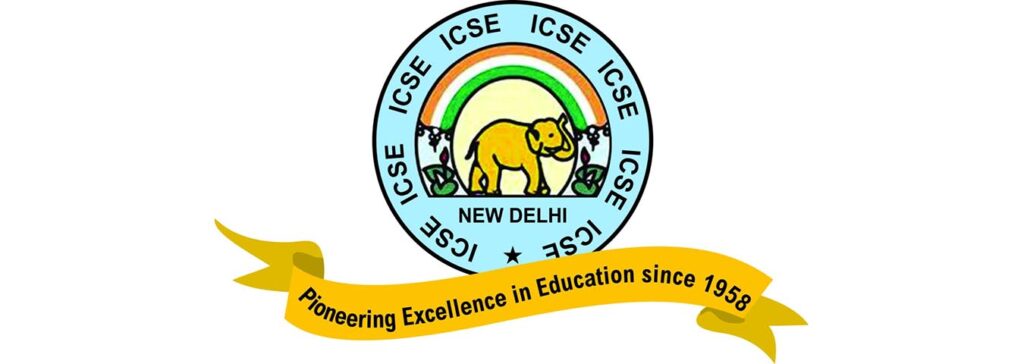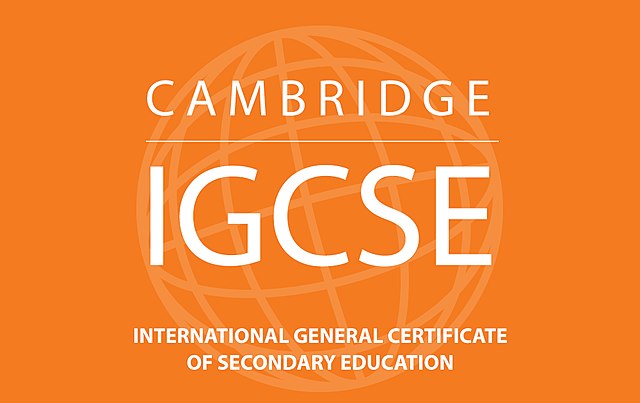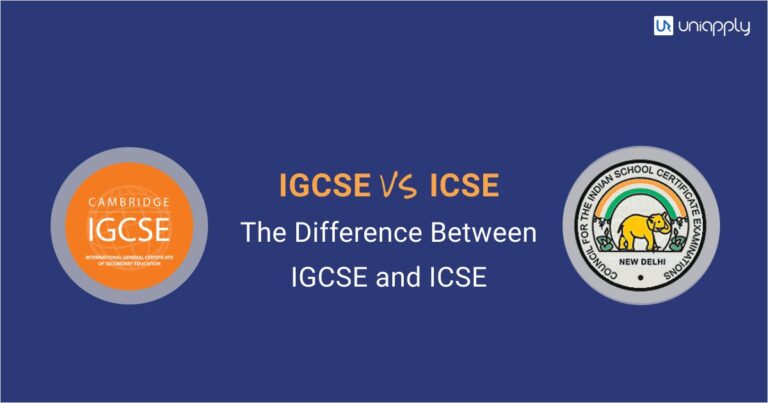In the world of education the exploration of the qualifications between two prominent worldwide curricula is imperative; ICSE (Indian Certificate of Secondary Education) and IGCSE (International General Certificate of Secondary Education). Whether you’re contemplating school choices or essentially inquisitive about these curricula, our blog is your guide to clarity in the field of learning.
Overview of ICSE Board

The Indian Certificate of Secondary Education (ICSE) is a broadly recognized educational board in India. It conducts exams for students in 10th and 12th grade, emphasizing a comprehensive educational module that joins English and a variety of subjects. ICSE is known for its careful educational standards, focus on holistic development, and use of English as the medium of instruction.
Overview of IGCSE Board

The IGCSE full form is: International General Certificate of Secondary Education is a globally recognized educational program offered by Cambridge University. It gives a well-rounded curriculum for understudies around the 14-16 age group, focusing on a wide range of subjects. IGCSE is known for its worldwide perspective, adaptability in subject choices, and assessment strategies that incorporate coursework and written examinations.
Key Differences between ICSE and IGCSE Board
Here are the differences between ICSE and IGCSE:
Curriculum
ICSE: ICSE follows a curriculum planned by the Council for the Indian School Certificate Examinations (CISCE), which is custom-made to Indian educational needs. It incorporates a wide range of subjects, with a solid focus on English language and literature.
IGCSE: IGCSE is developed by the University of Cambridge International Examinations (CIE) and is designed for a worldwide audience. It offers a broader range of subjects, permitting students to select from a variety of choices that align with worldwide standards.
Medium of Instruction
ICSE: The medium of instruction for most subjects in ICSE is English, making English language proficiency a pivotal aspect of the curriculum.
IGCSE: IGCSE too fundamentally employs English as the medium of instruction, but it is more accommodating to non-native English speakers, providing extra support for language improvement.
Assessment and Examination:
ICSE: ICSE examinations are regularly conducted at the end of the 10th grade. The assessment incorporates both written examinations and coursework assessments, making it a comprehensive assessment system.
IGCSE: IGCSE assessments are conducted at the end of the 10th grade as well. It combines written examinations and coursework, offering flexibility in choosing the number of subjects and exams.
Global Recognition:
ICSE: While ICSE is well-recognized within India, its worldwide acknowledgment is to some degree restricted compared to IGCSE.
IGCSE: IGCSE enjoys worldwide acknowledgment and is broadly accepted by colleges and educational institutions around the world. It is particularly popular in international schools.
Adaptability:
ICSE: ICSE provides less flexibility in choosing subjects compared to IGCSE. Students frequently have a set of obligatory subjects they must study.
IGCSE: IGCSE offers greater flexibility in subject choices, permitting students to tailor their curriculum to their interests and future career objectives.
Reasoning of Instruction:
ICSE: ICSE places a solid emphasis on a well-rounded education with a focus on humanities, sciences, and language. It often joins Indian social components in its curriculum.
IGCSE: IGCSE emphasizes a more global and holistic approach to education. It promotes basic thinking, problem-solving, and practical aptitudes, preparing students for worldwide settings.
Extracurricular Activities
ICSE: schools frequently have a wide range of extracurricular activities, but their accessibility and emphasis may vary.
IGCSE: IGCSE schools tend to put a solid emphasis on extracurricular activities as part of their holistic education approach.
Teacher Qualifications:
ICSE: ICSE teachers generally ought to meet Indian teaching qualification guidelines.
IGCSE: IGCSE schools may enlist teachers with international teaching qualifications, in spite of the fact that qualifications can vary depending on the school.
Syllabus of ICSE Board
The Indian Certificate of Secondary Education (ICSE) is a widely recognized and respected educational board in India. It offers a comprehensive curriculum that focuses on a holistic education. The ICSE syllabus covers various subjects, including:
English: Language and literature components, including grammar, comprehension, and creative writing.
Second Language: Typically includes Hindi, Bengali, French, German, Spanish, or other regional languages.
Mathematics: Algebra, geometry, trigonometry, statistics, and probability.
Science: Physics, Chemistry, and Biology with in-depth coverage of each subject.
History and Civics: Historical events, political systems, and the functioning of governments.
Geography: Physical and political geography, climate, and natural resources.
Computer Science: Introduction to computer concepts, programming languages, and computer applications.
Economics: Basic economic principles, economic development, and current economic issues.
Commercial Studies: Business studies, accounting, and entrepreneurship.
Environmental Education: Awareness of environmental issues and sustainable practices.
Physical Education: Physical fitness, sports, and games.
Art: Drawing, painting, and creative expression.
Syllabus of IGCSE Board
The International General Certificate of Secondary Education (IGCSE) is a globally recognized curriculum offered by the Cambridge International Examinations (CIE). It is designed to provide a well-rounded and internationally relevant education. The IGCSE syllabus is typically divided into several subject areas:
Core Subjects:
English Language: Focuses on language skills, reading comprehension, and writing.
Mathematics: Includes topics like algebra, geometry, statistics, and calculus.
Science: Biology, Chemistry, and Physics with an emphasis on practical skills.
Optional Subjects: Students can choose from a wide range of subjects, including but not limited to:
Languages: Such as French, Spanish, Mandarin, or additional English.
Humanities: Geography, History, Economics, and Business Studies.
Creative and Technical Subjects: Art and Design, Music, Design and Technology, and Computer Science.
Social Science: Sociology, Psychology, and Global Perspectives.
Assessment:
IGCSE assessment includes coursework, practical exams, and written exams. Some subjects have multiple tiers of assessment to cater to students of different abilities.
Grading:
Students get grades extending from A* (highest) to G (lowest).
Emphasis on Skills:
IGCSE energizes critical thinking, problem-solving, and practical application of information. It promotes all- round development, including co-curricular and extracurricular activities.
International Perspective:
IGCSE is known for its global perspective, making it reasonable for students looking for instruction that can effectively be transferred across borders and recognized by colleges around the world.
Conclusion
Both ICSE and IGCSE boards offer distinctive educational experiences. ICSE emphasizes a well-established curriculum with a focus on critical thinking, while IGCSE provides a global perspective and flexibility in subject choices. The ever existing conflict of IGCSE vs ICSE, depends on individual preferences and academic aspirations, each catering to diverse learning needs.
Download PPT On Differences Between ICSE And IGCSE

Video On Differences Between ICSE And IGCSE
FAQs On Differences Between ICSE And IGCSE
1. Is IGCSE and ICSE the same?
Ans: No, IGCSE (International General Certificate of Secondary Education) and ICSE (Indian Certificate of Secondary Education) are not the same. They are two distinct educational systems with different curricula and global recognition.
2. Is IGCSE valid in India?
Ans: Yes, IGCSE is recognized and accepted in India, and several schools in the country offer IGCSE programs. It provides an international curriculum and is valued for its global perspective.
3. Is ICSE accepted in the USA?
Ans: ICSE is generally not accepted as a direct equivalent to US high school diplomas. However, students with an ICSE background may need to undergo an evaluation or take additional courses to meet US education standards.
4. Is IGCSE better than ICSE?
Ans: The choice between IGCSE and ICSE depends on individual preferences and goals. IGCSE offers a more global perspective, while ICSE is well-rounded with a focus on critical thinking. “Better” varies based on a student’s needs and aspirations.
5. Is IGCSE eligible for NEET?
Ans: Yes, students with an IGCSE background can appear for the NEET (National Eligibility cum Entrance Test) in India. However, they must meet the NEET eligibility criteria, including the required subjects and minimum marks in their qualifying examination.












